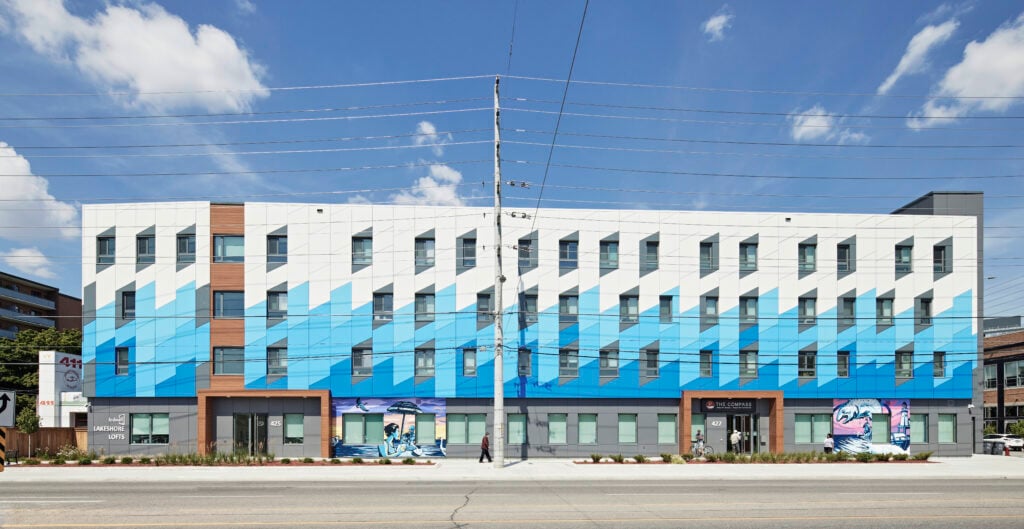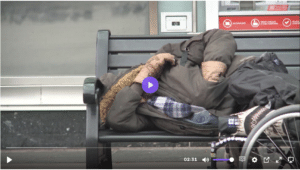There are a lot of misconceptions when it comes to supportive housing and food banks. This month, Indwell and The Compass Food Bank & Outreach Centre are teaming up to bust some of the most common myths and share the real stories behind the work we do to support individuals and families in south Mississauga.
MYTH 1: Supportive housing is just another type of shelter.
Reality: Supportive housing provides permanent, stable housing not just a temporary bed. Indwell’s housing offers long-term homes alongside wraparound services like mental health care, addiction support, and life skills training, giving people the tools they need to rebuild their lives.
MYTH 2: Food banks are only for people who are unemployed.
Reality: The Compass supports many clients who are working, sometimes at more than one job. With rising costs, employment is no longer a guarantee against hunger. Many people visiting The Compass never imagined they’d need a food bank.
MYTH 3: Residents of supportive housing don’t pay rent.
Reality: Indwell residents do contribute to their rent based on income. This model promotes both affordability and personal responsibility, helping individuals maintain independence while accessing needed support.
MYTH 4: Food banks give out expired or low-quality food.
Reality: The Compass provides fresh produce, dairy, protein, and culturally relevant foods, following strict safety standards. One-third of all food is purchased to ensure quality and nutrition for the 2,000+ people served weekly.
MYTH 5: Supportive housing attracts crime and reduces neighbourhood safety.
Reality: Research shows the opposite, that supportive housing contributes to safer communities. Indwell properties are thoughtfully designed, with on-site staff and community engagement that fosters pride and connection.
MYTH 6: People who use food banks are taking advantage of the system.
Reality: The decision to seek help is rarely easy. Clients at The Compass include seniors, newcomers, single parents, and people recovering from illness or job loss. Most use food bank services only temporarily during hard times.
MYTH 7: People in supportive housing are lazy and don’t want to work.
Reality: Many residents face real barriers like trauma, illness, or addiction. With support, many gradually return to work, volunteer, or engage in meaningful community life. Indwell empowers individuals to thrive.
MYTH 8: Food banks like The Compass only hand out food.
Reality: The Compass is also an outreach centre, providing hot meals, housing and employment assistance, mental health supports, and more. It’s a hub of hope, not just a place to pick up groceries.
MYTH 9: Supportive housing isn’t cost-effective.
Reality: It saves public money in the long run. Stable housing reduces reliance on emergency services, shelters, hospitals, and the justi
MYTH 10: Food insecurity isn’t a problem in Mississauga.
Reality: Hunger exists here, too. At The Compass, one in three grocery clients is a child. As food prices rise, more neighbours than ever are turning to us for help. No one should have to choose between rent and food.
By clearing up misconceptions, we can help foster more compassion, understanding, and support for those facing complex challenges. When communities come together — through housing, food, and dignity — everyone benefits.
Adapted from Councillor Dasko’s June 2025 Newsletter






 Indwell
Indwell